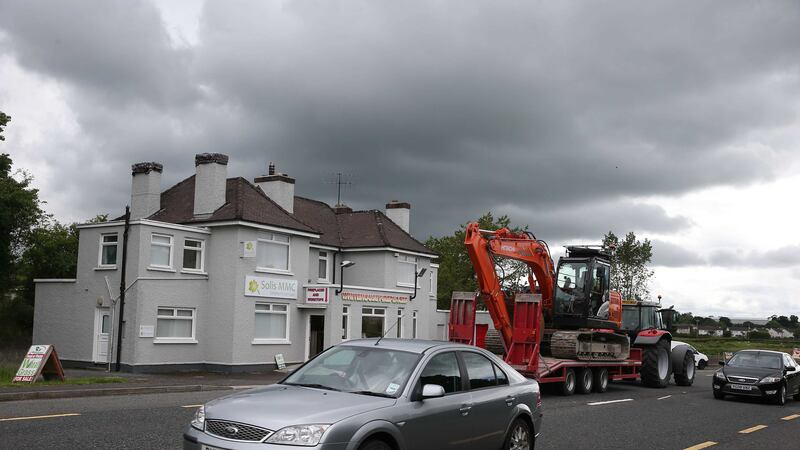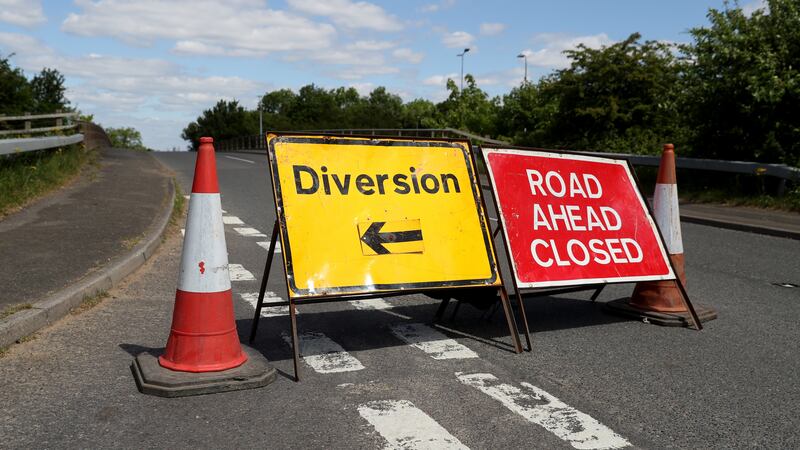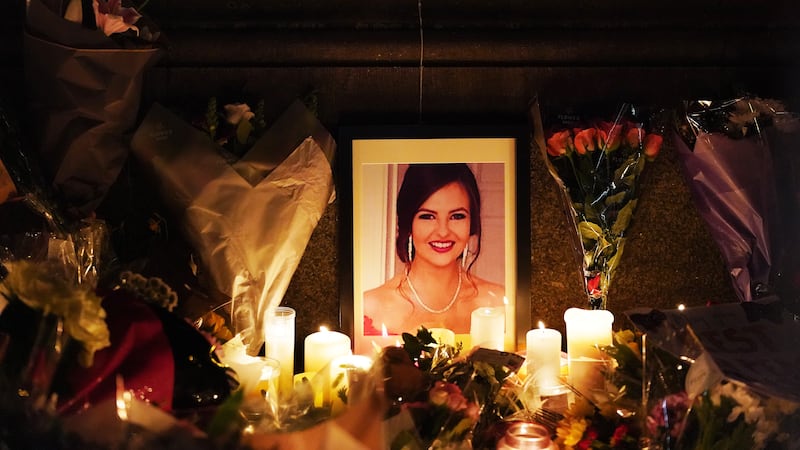BUSINESS representatives on both sides of the Irish border have expressed fears for the economic future in the wake of the Brexit vote.
While trading bodies in Co Donegal and Co Derry spoke of shock and concern, Stormont's economy minister insisted the economic outlook would not be damaged.
During the referendum campaign, the Remain and Leave camps traded claim and counter claim on the issues of free movement, trade and security on the border if the north exited the EU.
The 310-mile frontier that separates the north and the Republic will now become the only land border between the UK and the EU.
Although heavily militarised with checkpoints and road closures during the Troubles, the peace process has opened up a seamless crossing between the jurisdictions.
Brexiteers insist there will be minimal impact on the border, but Remainers have warned of a return to check points and trade tariffs.
Sinead McLaughlin, chief executive of Derry's Chamber of Commerce, said the fears of business owners in the city had now been realised.
"We are very saddened and very disappointed that the result has gone the way it did," she said.
"We are cognisant this is going to have a greater and deeper impact in the north-west than any other region in the United Kingdom because of our proximity to the border and our businesses are concerned and fearful.
"I think it is incumbent on the Irish government and UK government to make a special case for this region and put out support mechanisms as soon as possible for us to give some certainty to our members in relation to the future of the region."
The Foyle constituency where Derry lies voted overwhelmingly in favour of Remain - 78 per cent to 22 per cent. Remain prevailed across Northern Ireland, with 56% wanting the UK to stay in the EU.
Toni Forrester, chief executive of Letterkenny Chamber of Commerce across the border in Co Donegal, said traders were "very shocked and disappointed".
"It is all so uncertain," she said.
"Any period of uncertainty for businesses isn't good."
Ms Forrester said businesses in the Republic could lose out in the short-term due to the fall in the value of sterling, with southern shoppers heading north for better value for money and potential northern customers put off from spending money in the south.
"We assume that will settle and we are used to the currency fluctuations," she said.
"But it is really the fact we don't really know what's going to happen - we don't know how long it's going to take and we are now the only land border with the UK and it's not in the EU, so it's very difficult.
"Nobody will tell us what the border is going to be like - we don't know."
Stormont economy minister Simon Hamilton, who campaigned for Brexit, acknowledged there were concerns among some in the business community. But he insisted the economic situation would not be negatively impacted by an exit.
"What we need now is a period of calmness and stability and for people to work together to try to get the best possible trade deal that the United Kingdom can get," he said.
Mr Hamilton's DUP colleague Sammy Wilson insisted the percentage of Brexit votes in the north far exceeded polling predictions, claiming voters had not been taken in by Remain claims about the border.
"I am glad the people in Northern Ireland were not intimidated by the kind of nonsense that the Prime Minister and ex-prime ministers came off with - that the peace process was going to collapse, and World War Three was going to happen, and the economy was going to melt down, and the border was going to have gun towers and minefields and barbed wire and machine gun posts and Lord knows what else along it," he said.
"People rose above that and many of them changed their minds and I am pleased about that."








